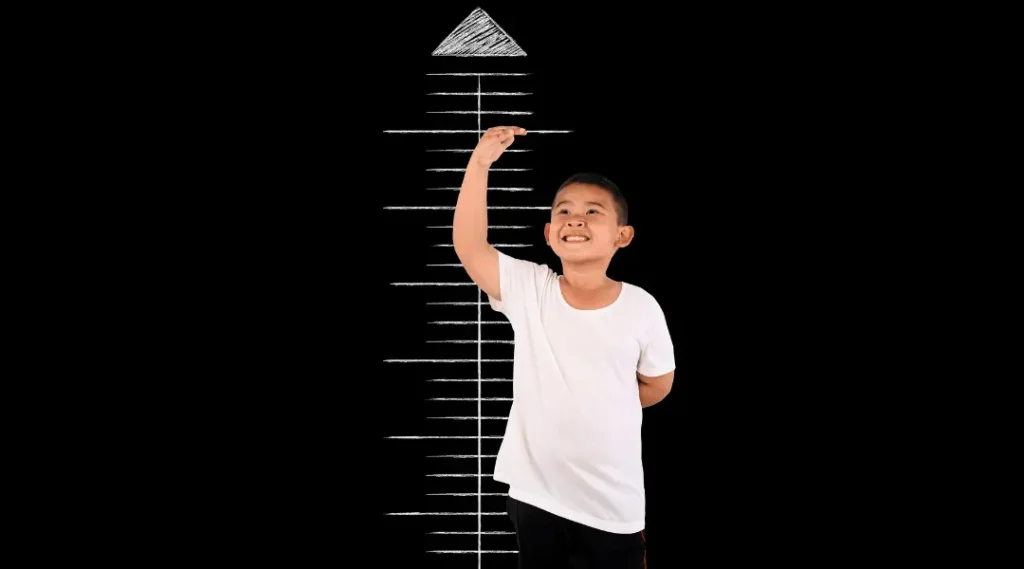Height is a physical characteristic that has been the subject of fascination and curiosity for centuries. People come in various shapes and sizes, and height plays a significant role in our overall appearance and how we perceive ourselves. While height alone does not define a person’s worth or capabilities, it undeniably affects certain aspects of life. In this article, we will explore the pros and cons of being taller or shorter, shedding light on the impact of height in different areas of life.
Table of Contents
ToggleThe Pros of Being Taller
- Confidence Boost: Taller individuals often enjoy a confidence boost due to their height. They tend to feel more self-assured in social situations and may project a stronger presence. This can be beneficial in professional settings, networking events, or even personal relationships.
- Enhanced Athletic Performance: Height can be advantageous in various sports. Tall individuals may excel in basketball, volleyball, swimming, or other activities that require reach, agility, and physical dominance. Longer limbs provide an advantage in terms of speed and coordination, making taller individuals more likely to succeed in certain athletic endeavors.
- Perceived Leadership Qualities: Studies have shown that taller individuals are often perceived as more authoritative and natural leaders. This perception can lead to increased opportunities for career advancement and professional success, as taller individuals are more likely to be chosen for leadership roles or management positions.
- Clothing Options: Taller individuals tend to have more choices when it comes to clothing. Many fashion trends are designed with taller frames in mind, and finding clothes that fit well is often easier for those with additional height. This can contribute to a greater sense of style and self-expression.

The Cons of Being Taller
- Physical Discomfort: Being taller can come with its share of physical discomfort. Taller individuals may experience back, knee, or joint pain due to the additional stress placed on their bodies. Furthermore, finding furniture or vehicles that accommodate their height can be a challenge, leading to discomfort in everyday situations.
- Height-Related Health Concerns: While height itself is not a health concern, some studies have suggested a correlation between height and certain health conditions. Taller individuals may have an increased risk of developing cardiovascular issues, certain types of cancer, or joint-related problems. However, it is important to note that these risks can be influenced by various factors, including genetics and lifestyle choices.
- Feeling Self-Conscious: Just as height can boost confidence in some individuals, it can also create feelings of self-consciousness in others. Standing out in a crowd or constantly being the center of attention may lead to discomfort or a desire to blend in. Height-related self-esteem issues can affect social interactions and overall well-being.
The Pros of Being Shorter
- Ease of Mobility: Shorter individuals often find it easier to maneuver in crowded spaces or through low-hanging obstacles. This can be an advantage in situations like public transportation, airplanes, or densely populated areas. Their compact stature allows for greater agility and flexibility.
- Reduced Injury Risk: Due to their lower center of gravity, shorter individuals may have a decreased risk of certain injuries, such as falls or joint-related problems. They typically have a more stable base, which can provide better balance and stability during physical activities.
- Cost Savings: Being shorter can result in cost savings in various aspects of life. Clothing alterations, for instance, may be less frequent or unnecessary altogether. Additionally, transportation costs, such as flights or car rentals, may be lower due to not requiring extra legroom or space.
- Greater Safety in Extreme Conditions: In extreme weather conditions, such as strong winds or low ceilings, shorter individuals may have an advantage. They are less susceptible to being knocked off balance or hitting their heads.

The Cons of Being Shorter
- Limited Reach: Shorter individuals may face challenges when it comes to reaching high objects or accessing items on tall shelves. This can be frustrating and may require assistance or the use of tools to accomplish everyday tasks. Additionally, certain sports or activities that require a greater reach may be more difficult to participate in.
- Height Bias: Unfortunately, height bias exists in society, and shorter individuals may experience certain disadvantages. In professional settings, they may be overlooked for promotions or leadership positions due to the perception that taller individuals possess more authority. This bias can also extend to dating and relationships, where taller partners may be preferred by some individuals.
- Difficulty in Certain Sports: While being short can be advantageous in certain sports that require speed and agility, it may pose challenges in activities that rely on height or reach. Sports such as basketball or volleyball may be more challenging for shorter individuals due to the physical demands and the advantage that height provides in those particular games.
- Limited Clothing Options: Shorter individuals may encounter difficulties finding properly fitting clothing. Many fashion trends and standard sizes are tailored to average or taller heights, resulting in the need for alterations or shopping in specialized stores. This can limit their choices and impact their ability to express their personal style.
Does Height Really Make a Difference?
Height matters in everyday life more than we often realise, even though it never tells the full story about a person. Being taller can make certain things easier, like reaching high shelves, standing out in a crowd, or having an advantage in some sports and careers, but it can also come with downsides, such as cramped travel spaces or back discomfort. Being shorter has its benefits too, including easier movement in tight spaces and less strain on the body, though it may bring reach challenges or unfair stereotypes. In the end, height shapes some daily experiences, but confidence, personality, and ability matter far more than inches.

Conclusion
Height is an inherent physical characteristic that impacts various aspects of life. Being taller or shorter comes with its own set of advantages and disadvantages. Taller individuals often enjoy confidence boosts, enhanced athletic performance, and perceived leadership qualities. On the other hand, they may experience physical discomfort, height-related health concerns, and feelings of self-consciousness. Shorter individuals benefit from ease of mobility, reduced injury risks, cost savings, and greater safety in extreme conditions. However, they may face limitations in reach, height bias, difficulty in certain sports, and limited clothing options.
It’s important to remember that height should not define one’s worth or limit one’s potential. While certain situations may present challenges, personal attributes, skills, and character are what truly matter. Embracing one’s height, whether tall or short, and focusing on personal growth, self-confidence, and individual achievements can lead to a fulfilling and successful life regardless of height.


